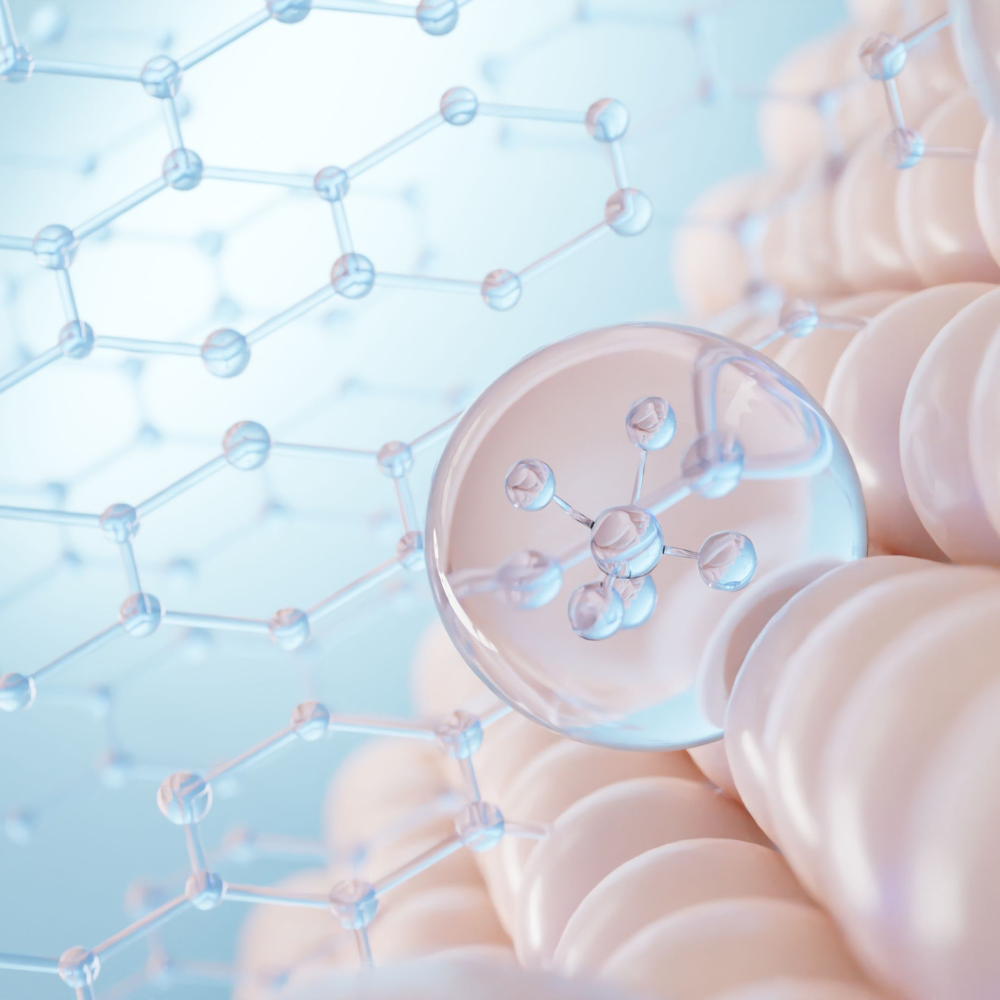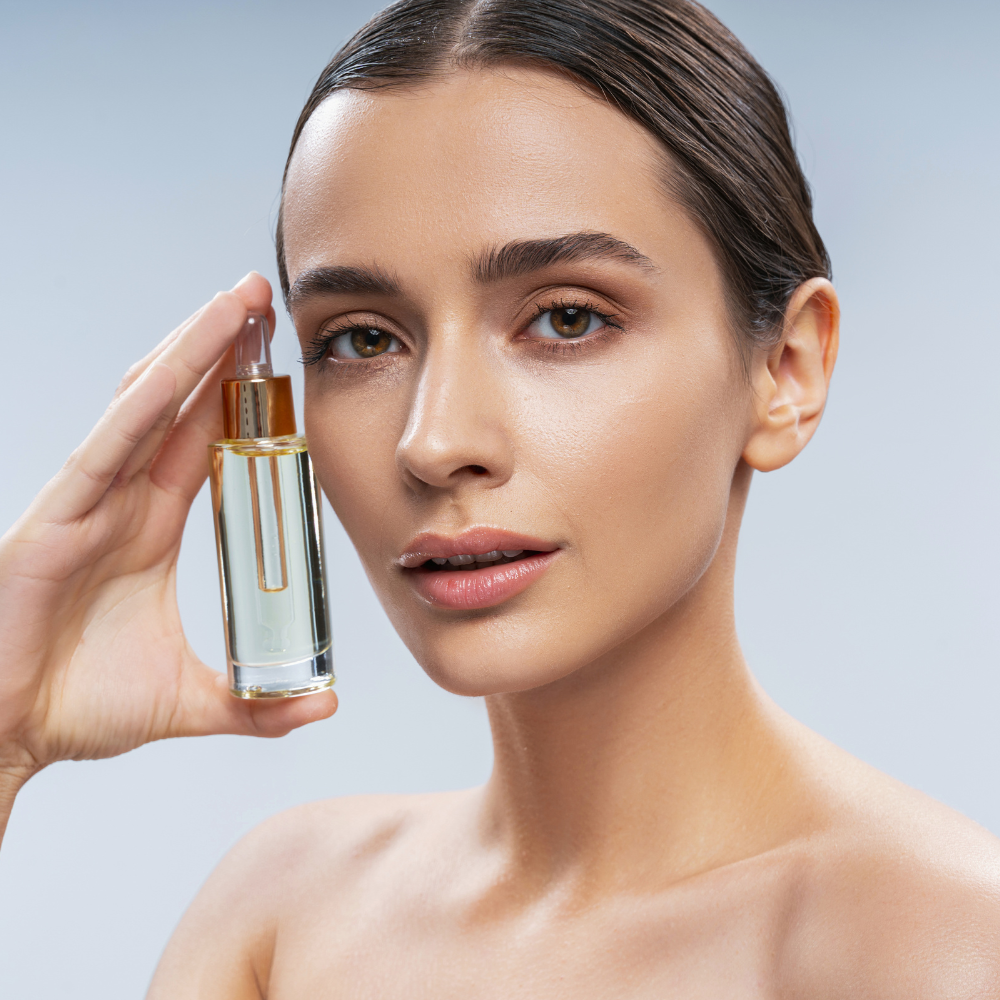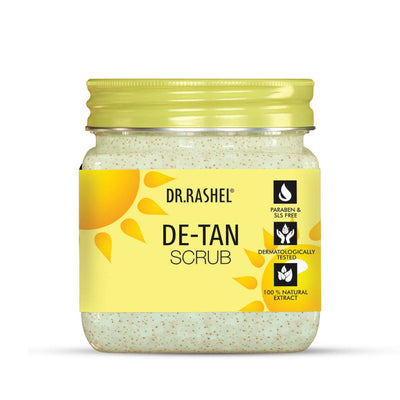
Table of Contents
- Hyaluronic Acid: Hydrating Hero
- Who needs Hyaluronic Acid?
- Advantages of Hyaluronic Acid
- Is Hyaluronic Acid good for oily skin?
- Is hyaluronic acid good for combination skin?
- Is hyaluronic acid good for acne prone skin?
- Dr Rashel has Hyaluronic Acid products for everyone
- Ending points
- FAQ’s
If you're a newbie to skincare, while on your hunt for suitable skincare ingredients, you definitely must have come across Hyaluronic Acid multiple times (it's literally everywhere). It got famous in the skincare world for all the right reasons.
In this blog, we'll be discussing Hyaluronic Acid in terms of what it is, its benefits, who needs it and skin type suitability. So stay locked in till the end.
Hyaluronic Acid: Hydrating Hero
Hyaluronic acid is an intensely hydrating ingredient Its ability to hold water in the skin makes it stand out from other skincare ingredients. Hyaluronic acid is naturally present in our body and is mostly found in the joints and connective tissues. Hyaluronic acid acts as a humectant that brings in moisture to the outer epidermis and keeps it quenched. It makes our skin look and feel supple, healthy and dewy from within.
As we age, hyaluronic acid is produced less in the body which causes our skin to lose water faster and get dehydrated leading to wrinkles, fine lines and other signs of aging. Therefore topical hyaluronic acid comes into the scene to revive your skin and keep it hydrated, smooth and plump.

Who needs Hyaluronic Acid?
Since you know, Hyaluronic Acid is produced naturally in the body, it is suitable and beneficial for every skin type. It hits different for dry or dehydrated skin as it is designed to improve overall hydration levels of the skin. Hyaluronic acid is one key player in anti-aging skincare because it restores the youthfulness in the skin and makes it plump. Hyaluronic acid is a lightweight, soothing and non-comedogenic ingredient. Hyaluronic acid does not cause clogged pores making it a good fit for oily and acne-prone skin types.
Advantages of Hyaluronic Acid
Intensely hydrates the skin
Hyaluronic acid can hold 1000 times its molecular weight in water which is useful to keep the skin hydrated for a long time. It enhances the moisture levels leading to plumper and smoother skin.
Provides anti-aging effects
Hyaluronic acid ensures your skin stays hydrated and well-hydrated skin has less chances of forming fine lines and wrinkles. Increased moisture retention also improves skin elasticity and firmness keeping it looking youthful.

Strengthened skin protection
Hyaluronic acid upgrades the strength of the skin's natural barrier which leads to more protection from environmental stressors like UV rays and pollution. This also helps heal scars and wounds.
Versatile skincare ingredient
Hyaluronic acid can be found in many formulations such as moisturizers, serums and cleansers which offers an array of ways for you to incorporate in your skincare routine. It is also super-friendly with other active ingredients and helps enhance their power.

Is Hyaluronic Acid good for oily skin?
This needs to be said: Oily skin also needs hydration! If you have oily skin, know that your skin can also get dehydrated which will lead to your body producing more oil to keep your skin hydrated. Hyaluronic acid for oily skin is lightweight in texture and will fill in moisture without making your face feel heavy and greasy. It is possible that oil production in the skin can be reduced when your skin is thoroughly hydrated.
Is hyaluronic acid good for combination skin?
With combination skin you get two-for-one, dry and oily areas on your face. Hyaluronic acid effectively works on combination skin and provides your skin with balanced hydration. It delivers lightweight and non-greasy hydration without cursing over-moisturization in oily zones of the face. Hyaluronic acid serum for combination skin can help replenish moisture, control sebum production and soothe the skin.
Is hyaluronic acid good for acne prone skin?
Dehydrated skin is the reason for your skin being in shambles!
Lack of moisture in the skin→ Skin compensates by overproducing sebum→ Accumulation of sebum in pores→ Clogged pores cause acne
So Hyaluronic Acid plays the part of a nice supporting friend that holds down moisture in your skin and makes it less prone to bacterial invasion. It is also good to use alongside acne treatments that can be dying on the skin.
Dr Rashel has Hyaluronic Acid products for everyone
Start your mornings by providing your skin with lots of hydration with this hydrating Hyaluronic acid face wash. We even have a Detoxifying HA face cleanser to remove dirt, oil and makeup before you go to bed.
Try the Vitamin C day and night serum that is packed with the power of Hyaluronic Acid to improve collagen and reduce skin damage and aging.
You can't go wrong with a nourishing cream infused with Hyaluronic Acid. It draws in moisture into your skin and creates a barrier that blocks evaporation, achieving intensely hydrated skin.
And this 1% HA Sunscreen is a game-changer that provides broad-spectrum sun protection and all day hydration.
Ending points,
Hyaluronic acid is an all-rounder in skincare because of its ability to hydrate, protect and keep your skin looking fresh. Whatever skin type you may be, this lightweight legend fits right in your skin regimen. HA is gentle, non-comedogenic and plays well with other ingredients which makes it a must-have for your skin. After reading this blog, I'm sure you're no longer a novice, at least when it comes to Hyaluronic Acid!
FAQ’s
How to get the best results from hyaluronic acid?
To get the best results from using Hyaluronic Acid, apply it daily on clean and damp skin. This will help draw in moisture and hydrate it effectively.
What percentage of hyaluronic acid is best for skin?
Generally 1-2 % of Hyaluronic Acid is best for hydrating the skin sufficiently. Using a higher percentage doesn't necessarily mean better results.
What are the side effects of hyaluronic acid serum?
Hyaluronic acid is usually safe on the skin however some people may experience redness, irritation and a tight feeling on their skin which happens when HA pulls moisture from deeper layers of the skin. To prevent this, apply HA on damp skin and follow up with a moisturizer.
Written by Madiha Patel







